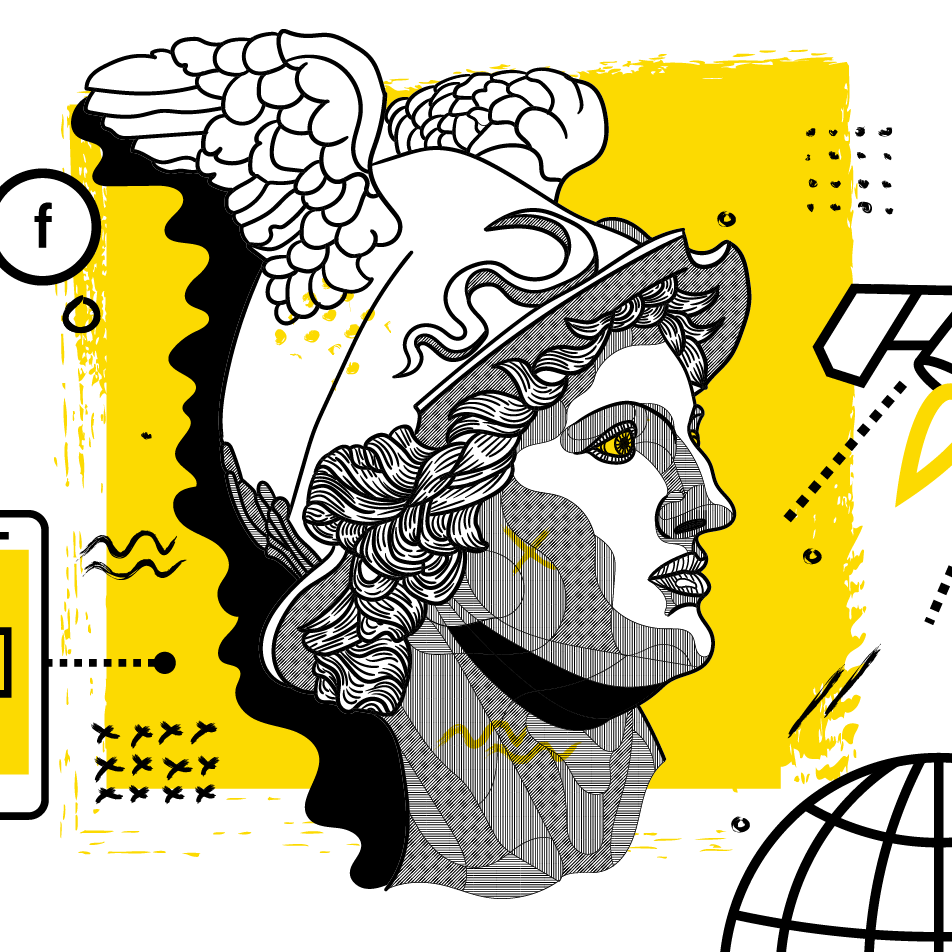We grow by sharing our experience, knowledge and expertise/

Digital evolution, corporate versatility and the role of the Digital Agency
In the last few decades, our deeply rooted relationships—for instance, with time, space, information and identity—have been greatly challenged. We have had to cope with abrupt changes in our perception and realities of scale, distance and pace, and to ‘survive,’ we have had to adapt to be able to synthesize an abundance not previously experienced. As individuals, versatility—even elasticity (considering the accelerated rate of change)—has allowed us to evolve alongside the scientific and technological innovations. But to what extent are companies as elastic as individuals? Contrary to the general belief they are not. Brian Solis a few years back described this inability as Digital Darwinism; the phenomenon whereby organizations are not able to keep pace with the (r)evolutions in technology and society.
The digital agency is a bridge between the abstraction of technology and the tangible requirements of market realities.
The tech industry drives innovation at an unprecedented speed, and, remarkably, a vast majority of individual users are much more adaptable to these technological advances than are organizations. We are eager to explore and embrace ‘the latest and the greatest,’ but as managers, we are more conservative in changing the way we do things. Consider, for example, the comfort zone encouraged in the concept of “best practices” in business. We cling to a process that worked for the organization in the past and trumpet it as a benchmark for all future endeavors.
Digital Darwinism threatens most organizations across a wide range of industries in terms of their ability to keep up with the fast changing world and to compete with organizations that are early adopters and seem to be able to foresee the future. To maintain their competitiveness, organizations would ultimately need to continue meeting consumer expectations, while at the same time, exceeding the ones offered by the competition now and in an unpredictable future.
Companies, however, that seek to ensure their future success need to strive to minimize the gap to keep ahead of the curve. This is one of the digital agency’s most fundamental roles: the translation of technological and societal revolutions into constructive and effective action for their clients.
Digital agencies greatly benefit clients not only by helping them make better decisions about their future, but also by adding value to their products, services and customer interactions. With a hybrid approach, a digital agency enables a company to explore and test innovative ideas and to integrate creative solutions that keep pace with technological evolutions. This is possible when digital agencies, on their part, invest in a client interaction by utilizing their time developing pilot projects and prototypes, and by synthesizing thought into practical applications of innovative solutions or processes. Only in a collaborative environment—where agencies and companies work side by side—can the gap of digital Darwinism become smaller.
Today and tomorrow’s huge technological advances are a certainty, and new interactions and behaviors are celebrated and criticized in equal measure. It is the company that selects and adapts with an elastic mindset—with the foresight and the courage to embrace progress and to harness it to its advantage—that is best situated in a world of unlimited possibilities. The digital agency is well equipped to help its clients face these challenges and come out ahead of the competition.




